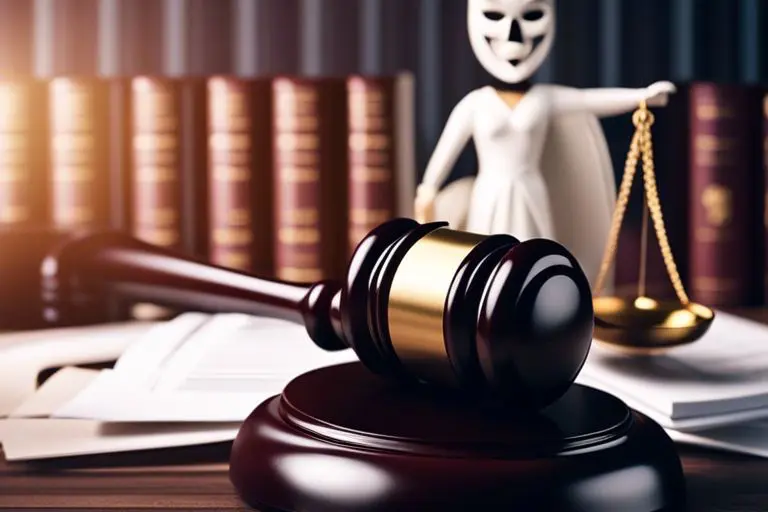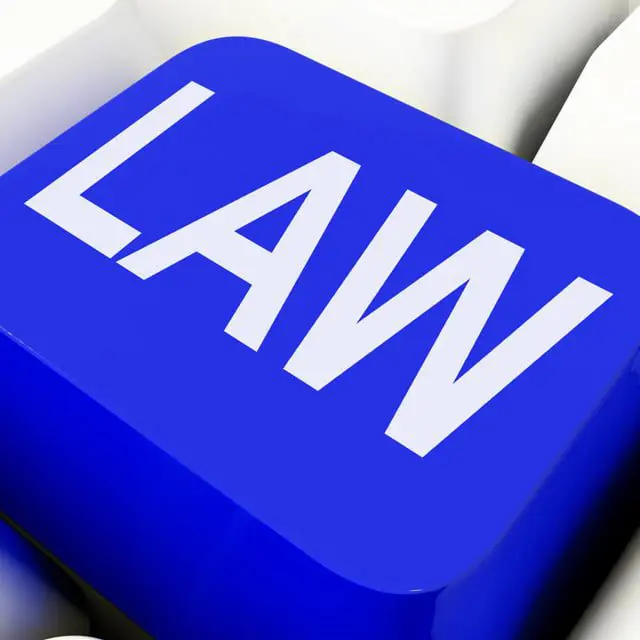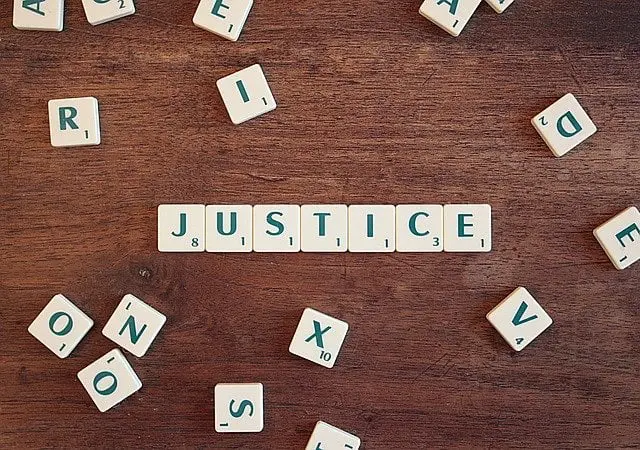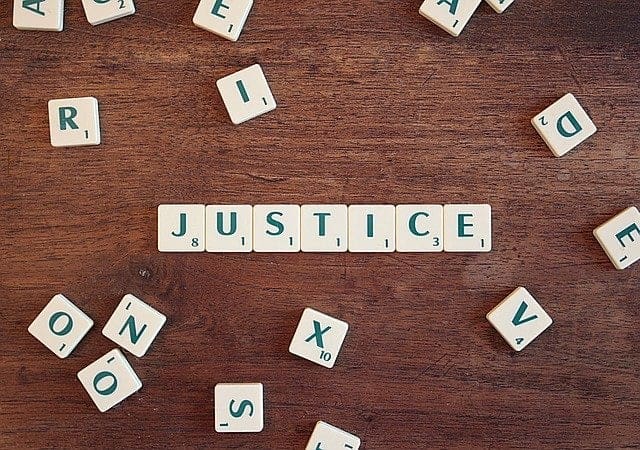Consequences of committing bankruptcy fraud can have severe legal ramifications. Bankruptcy fraud occurs when an individual or corporation knowingly and fraudulently conceals assets, makes false statements, or engages in other deceptive practices during the bankruptcy process. These actions not only undermine the integrity of the bankruptcy system but also have serious legal implications.
Individuals found guilty of bankruptcy fraud may face criminal charges, fines, and even imprisonment. In addition, their bankruptcy discharge may be denied, leaving them responsible for their debts. It is crucial to understand the legal consequences of bankruptcy fraud to avoid committing such acts and to protect oneself from the harsh penalties that accompany them.
Fundamentals of Bankruptcy Law
While bankruptcy law can be complex and overwhelming, understanding the fundamentals is crucial in navigating the process. Bankruptcy law provides individuals and businesses with a legal framework to manage debts and financial obligations they are unable to meet. It aims to offer a fresh start to debtors while ensuring fair treatment for creditors.
Definition of Bankruptcy
To begin, bankruptcy is a legal process that involves a person or business that is unable to repay outstanding debts. It is overseen by federal courts and offers the debtor a way to either eliminate or repay their debts under the protection of the bankruptcy court. The primary goals of bankruptcy are to provide relief to debtors in financial distress and to establish an equitable distribution of assets to creditors.
Types of Bankruptcy Proceedings
To further understand bankruptcy, it is important to recognize that there are different types of bankruptcy proceedings outlined in the U.S. Bankruptcy Code. The most common types of bankruptcy for individuals are Chapter 7 and Chapter 13, while Chapter 11 is often used by businesses.
- Chapter 7: Known as “liquidation bankruptcy,” this type involves the sale of the debtor’s nonexempt property to repay creditors.
- Chapter 13: Referred to as “reorganization bankruptcy,” this type allows individuals with regular income to create a repayment plan to settle their debts.
- Chapter 11: Primarily utilized by businesses, Chapter 11 bankruptcy enables reorganization to keep the business operational while addressing debt obligations.
| Chapter 7 | Liquidation bankruptcy involving the sale of nonexempt assets. |
| Chapter 13 | Reorganization bankruptcy allowing individuals to create a repayment plan. |
| Chapter 11 | Business reorganization bankruptcy for ongoing operations. |
Another type of bankruptcy is Chapter 12, which is specific to family farmers and fishermen. This chapter provides a reorganization plan for debt repayment tailored to the unique financial challenges faced by agricultural and fishing operations.
- Recognizing the differences between these bankruptcy chapters is crucial in determining the most appropriate course of action based on an individual’s or business’s specific financial circumstances.
| Chapter 12 | Designed for family farmers and fishermen to reorganize debt repayment. |
Bankruptcy Fraud Explained
Common Forms of Bankruptcy Fraud
To understand bankruptcy fraud, it is vital to first recognize the common forms it can take. Some individuals may attempt to conceal assets from the bankruptcy court, undervalue their assets, or transfer assets to family members or friends to avoid having them included in the bankruptcy estate. Others may provide false information or make false statements in their bankruptcy filings. Additionally, some may even file multiple bankruptcy petitions in different states in an attempt to defraud creditors and the bankruptcy system.
Legal Provisions Against Bankruptcy Fraud
With the serious implications of bankruptcy fraud, there are strict legal provisions in place to prevent and punish such fraudulent activities. The Bankruptcy Code specifically addresses fraudulent behavior in bankruptcy proceedings. Individuals who engage in bankruptcy fraud can face severe consequences, including fines, imprisonment, and a denial of discharge of their debts. Moreover, bankruptcy fraud is also a federal crime, which can lead to criminal prosecution by the United States Department of Justice.
Understanding the gravity of bankruptcy fraud is crucial for individuals contemplating bankruptcy. It is imperative to be transparent and honest in all dealings with the bankruptcy court to avoid severe legal repercussions. Consulting with a legal professional who specializes in bankruptcy can provide guidance on navigating the process ethically and in accordance with the law.
Criminal Charges in Bankruptcy Fraud
Federal Bankruptcy Fraud Statutes
Statutes related to federal bankruptcy fraud are outlined in Title 18 of the United States Code, specifically in sections 152, 157, and 158. Section 152 covers various forms of bankruptcy fraud, including concealing assets, making false statements, or engaging in any type of fraudulent activity during the bankruptcy process. Section 157 pertains to bankruptcy fraud committed by individuals who are not necessarily debtors themselves but are involved in fraudulent activities related to bankruptcy filings. Finally, section 158 addresses offenses related to the obstruction of bankruptcy-related court proceedings.
Other Related Federal Charges
With bankruptcy fraud often comes a slew of other federal charges, such as money laundering, wire fraud, and mail fraud. These additional charges can significantly increase the severity of the legal consequences faced by individuals involved in bankruptcy fraud schemes.
Plus, federal prosecutors may also pursue charges for perjury, conspiracy, or falsifying documents in connection with bankruptcy fraud investigations. These charges can result in lengthy prison sentences and hefty fines upon conviction.
State Crimes Associated with Bankruptcy Fraud
Bankruptcy fraud can also lead to state-level criminal charges, such as perjury, forgery, or larceny, depending on the specific actions taken by individuals involved in fraudulent bankruptcy activities. State prosecutors may choose to pursue these charges in addition to any federal charges filed against the perpetrators.
Charges related to state crimes associated with bankruptcy fraud can result in separate legal proceedings and penalties, adding to the complexity of the legal issues faced by individuals accused of engaging in fraudulent activities during bankruptcy proceedings.
Civil Penalties and Remedies
Denial of Discharge
Penalties for bankruptcy fraud can result in the denial of discharge, which means that the bankruptcy filer will not receive the benefits of having their debts discharged. This is a severe consequence as it importantly renders the bankruptcy process ineffective for the individual in question.
Your bankruptcy discharge can be denied if the court finds that you have engaged in fraudulent activities such as concealing assets, providing false information, or otherwise misleading the court or creditors.
Revocation of Discharge
Discharge of bankruptcy can also be revoked if it is discovered that the filer committed fraud during the bankruptcy process. Revocation of discharge means that any debts that were previously discharged may become reinstated, leaving the individual responsible for repayment.
For instance, if it is found that the bankruptcy filer intentionally misrepresented their financial situation or assets, the court may decide to revoke the discharge and hold them accountable for their debts.
Fines and Restitution Orders
On top of denial or revocation of discharge, individuals found guilty of bankruptcy fraud may face fines and restitution orders. Fines can be substantial and may serve as a deterrent for others considering fraudulent activities during the bankruptcy process.
Restitution orders require the individual to repay any funds that were obtained through fraudulent means, ensuring that creditors are not left at a loss due to the individual’s dishonest actions.
Bar to Future Bankruptcy Filings
On top of facing civil penalties, individuals who commit bankruptcy fraud may also be barred from filing for bankruptcy in the future. This can severely limit their options for debt relief and financial recovery, as they would be unable to access the benefits of bankruptcy protection.
Remedies for bankruptcy fraud are designed to uphold the integrity of the bankruptcy process, protect the rights of creditors, and ensure that individuals are held accountable for their actions. It is important to understand the potential consequences of bankruptcy fraud and to seek legal counsel to navigate the process properly.
Investigative Processes and Authorities
Role of the United States Trustee
All bankruptcy cases are overseen by the United States Trustee Program, a branch of the Department of Justice. The United States Trustee plays a vital role in investigating bankruptcy fraud by conducting reviews of filed documents, monitoring for suspicious activity, and addressing any concerns raised by creditors or the court. Through its oversight, the United States Trustee ensures the integrity of the bankruptcy process and works to maintain public confidence in the system.
Coordination with Other Federal Agencies
An important aspect of investigating bankruptcy fraud involves coordination with other federal agencies such as the Federal Bureau of Investigation (FBI), the Internal Revenue Service (IRS), and the Department of Homeland Security. These agencies may provide specialized expertise, resources, and enforcement capabilities to assist in uncovering fraudulent activities related to bankruptcy cases. By working together, these agencies can effectively combat fraud and hold perpetrators accountable.
Processes involving coordination with other federal agencies in bankruptcy fraud cases may include sharing information, conducting joint investigations, and pursuing criminal charges when necessary. This collaborative approach enhances the ability to identify and prosecute individuals who attempt to abuse the bankruptcy system for personal gain.
Bankruptcy Court’s Authority in Fraud Cases
Within the bankruptcy process, the bankruptcy court has the authority to address instances of fraud that arise during a case. This authority empowers the court to investigate suspicious claims, sanction fraudulent behavior, and take action to protect the integrity of the bankruptcy system. By exercising its authority in fraud cases, the bankruptcy court plays a critical role in deterring fraudulent activities and upholding the principles of fairness and honesty in bankruptcy proceedings.
It is important for all parties involved in the bankruptcy process to understand the consequences of committing fraud and the significant role that the bankruptcy court plays in ensuring accountability. By respecting the authority of the court and cooperating with investigative processes, individuals can help maintain the integrity of the bankruptcy system and promote trust in the legal framework that governs financial affairs.
The Impact of Bankruptcy Fraud Conviction
Many individuals may not fully grasp the severe consequences that can result from a bankruptcy fraud conviction. Beyond legal penalties, such as fines and imprisonment, a conviction for bankruptcy fraud can have long-lasting effects on various aspects of a person’s life.
Consequences on Professional Licenses
The ramifications of a bankruptcy fraud conviction extend to professional licenses in fields such as law, medicine, finance, and real estate. Individuals convicted of bankruptcy fraud may face disciplinary actions, including suspension or revocation of their professional licenses. This not only tarnishes their professional reputation but also impedes their ability to practice in their chosen field.
Effect on Employment Opportunities
An individual’s employment prospects can be significantly impacted by a bankruptcy fraud conviction. Many employers conduct background checks as part of their hiring process, and a fraud conviction can raise red flags and lead to the rejection of job applications. Additionally, some industries have specific regulations that prohibit individuals with certain criminal convictions, including bankruptcy fraud, from employment.
To add insult to injury, even if an individual manages to secure employment after a bankruptcy fraud conviction, their career advancement opportunities may be limited. Employers may be hesitant to promote or entrust important responsibilities to someone with a history of financial dishonesty.
Implications for Credit and Financial Future
To compound the consequences of a bankruptcy fraud conviction, individuals may find it challenging to rebuild their credit and financial standing. A fraud conviction can stay on a person’s record for an extended period, making it difficult to qualify for loans, mortgages, or credit cards. Lenders and financial institutions are wary of extending credit to individuals with a history of financial misconduct, further hindering their efforts to regain financial stability.
Effectively, a bankruptcy fraud conviction can set a negative precedent that follows individuals for years, impacting their ability to secure loans, find affordable housing, or make significant financial decisions. It is imperative for individuals to be aware of these potential long-term consequences before engaging in any fraudulent activities related to bankruptcy.
Defending Against Allegations of Bankruptcy Fraud
Legal Defenses in Bankruptcy Fraud Cases
Against allegations of bankruptcy fraud, individuals can mount legal defenses to challenge the accusations. Common defenses include lack of intent to defraud, errors or inaccuracies in the bankruptcy paperwork that were unintentional, and misunderstandings of complicated bankruptcy laws. It is crucial for individuals facing allegations of bankruptcy fraud to seek legal representation to help build a strong defense and navigate the complexities of the legal system.
The Role of Bankruptcy Attorneys
Cases involving allegations of bankruptcy fraud often require the expertise of experienced bankruptcy attorneys. Bankruptcy attorneys play a vital role in representing clients, analyzing the evidence against them, and developing a defense strategy. They have a deep understanding of bankruptcy laws and procedures, which is vital in crafting a robust defense to protect the rights of the accused.
It is highly recommended that individuals facing allegations of bankruptcy fraud seek the services of a knowledgeable bankruptcy attorney who can provide guidance and advocacy throughout the legal process. An attorney specializing in bankruptcy law can help clients navigate the complexities of the legal system, challenge allegations of fraud, and work towards a favorable resolution.
Summing up
Conclusively, bankruptcy fraud is a serious offense with severe legal consequences. Those found guilty of committing bankruptcy fraud can face fines, imprisonment, and other penalties. It is crucial for individuals to be truthful and transparent when filing for bankruptcy to avoid the legal ramifications associated with fraudulent activities.
Authorities take bankruptcy fraud cases very seriously, and those who engage in such activities will be held accountable. It is important to seek legal counsel if you have any concerns or questions about the bankruptcy process to ensure compliance with the law and avoid the pitfalls of fraudulent behavior.
















